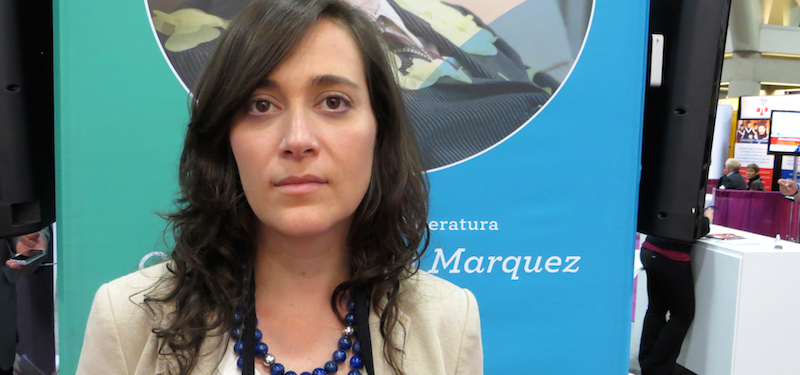NJM: We have different branches but in higher education we try to help the universities so they can manage internationalisation in a better way. That means trying to improve their capacity for having their own policies and giving them tools for internationalisation.
We also promote the country – we lead a strategy that is putting together different entities promoting Colombia as a destination, as a partner for the world and as a destination for Spanish, for higher education, and for research.
The PIE: What kind of tools do you provide?
NJM: We have different strategies. One is to put on seminars and workshops for universities; we bring national and international speakers to different areas, go to different regions and work within university networks so we can reach more institutions. We also have a programme to build capacity, where we take more experienced universities and work with them so they can work with their peers with less experience to bring them tools for internationalisation.
We also work to build policies in the universities: working plans for internationalisation so they have a budget and a real programme.
“We don’t have many universities operating programmes in English. That means there are some regions that we cannot reach right now”
The PIE: Does Colombia have a target number of international students that it would like to attract?
NJM: We’re very new at this. It’s only in the last three years Colombia has been trying to see itself as a destination; before we were just focused on sending our students abroad. We have a lot of students in different countries – in Latin America, for example, we are the country with the third largest number of students abroad after Mexico and Brazil – in the United States, in Germany, in France, in Spain…. in those three years education has become a key policy in our foreign policies, so we are working with universities to promote inbound mobility.
Because it’s very new we still don’t have an agency, for example, like some countries, and we also don’t yet have a national policy like bringing in 50,000 students in the next year. Right now we are conducting studies to see what capacity our universities have, because we still have obstacles. Like, for example, we don’t have many universities operating programmes in English. That means there are some countries and regions that we cannot reach right now. But I guess in the next year we will have something more concrete.
We are working very closely with the US to build a programme around the 100k [in the Americas] initiative. And what we want is to have 20,000 students between Colombia and the US in the next five years. But we don’t have that for every country yet.
The PIE: For-profit education is banned in Colombia – how does that affect international students?
NJM: That’s right. We have private institutions and public institutions – it’s about 50/50 probably, and they are all non-profit.
I don’t think it has a large impact, because normally, for example, international undergraduate students pay the fees at home and the universities make exchange agreements. And when they do a Masters, private Colombian institutions are very competitive with prices. It’s still not so high. And often international students will pay the same as Colombian students, it’s not like in the US where they pay much more. So it’s very competitive.
The PIE News: What is it that you think attracts students to Colombia?
NJM: Well, the first thing is that we do have quality; that’s something that we have to show the world, because everyone thinks that Latin America doesn’t have qualilty. And when you see Latin America, you think of Chile, for example, Mexico, Brazil, but Colombia is very new. We have 288 institutions and 32 have high quality accreditation – we have a very good quality assurance system.
“We have 288 institutions and 32 have high quality accreditation – we have a very good quality assurance system”
The second is we have a lot of experience in research in subjects like biodiversity, conflict and different areas that are very attractive to other countries, so we try to focus on those areas.
And for Spanish we are very strong too, our Spanish is very well recognised abroad, so last year we launched a strategy called Spanish in Colombia that was launched by the Colombian presidency but is delivered by the universities. We have 20 really good universities working with the government to promote Spanish in Colombia and that’s going very well too.
The PIE: Yes, I’ve heard a lot of people talking about Latin America as a study destination and as a source market – there’s a lot of excitement about it at the moment.
NJM: Yes, and the good thing is we are already thinking about the region, you know. Like before, you saw Brazil and Colombia and Argentina – everybody was thinking about Europe and North America, and now we are doing a lot of partnerships in the region, like Colombia and Argentina, Colombia and Brazil, and that’s very good because we’re getting strong as a region, not just individually.
The PIE: Do students from Latin America make up a large proportion of the incoming students?
Related articles




One Response to Natalia Jaramillo Manjarrés, MoE, Colombia